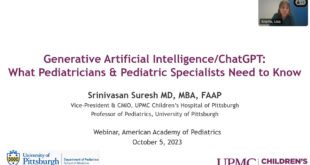The Hidden Importance of Zinc in the Body
Zinc is one of the most essential minerals for maintaining overall health and well-being. It ranks as the second most abundant metal in the human body, following calcium. This mineral plays a crucial role in regulating metabolism, supporting immune function, promoting wound healing, and facilitating cell growth. However, despite its significance, many people may not be getting enough zinc through their diet or lifestyle.
Approximately one in six Americans may not be consuming sufficient amounts of zinc through their food intake. Foods such as meat, eggs, dairy products, legumes, and whole grains are rich sources of this vital nutrient. Since the body cannot produce zinc on its own, it must be obtained through dietary sources or supplements. A deficiency in zinc can lead to various health complications, including an increased risk of severe infections, infertility, and growth delays.
While zinc deficiency is relatively rare, certain groups may be more susceptible. Individuals with eating disorders, substance use disorders, or gastrointestinal conditions, as well as vegans and vegetarians, may have a higher risk of not meeting their zinc needs. Additionally, older adults often consume fewer foods high in zinc, and their bodies may not absorb or utilize the mineral as efficiently, further increasing their risk of deficiency.
It’s important to note that excessive zinc intake can also be harmful. Too much zinc may cause nausea, vomiting, and headaches. Therefore, it is always advisable to consult with a healthcare professional before starting any supplement regimen.
Recognizing the Signs of Zinc Deficiency
There are several symptoms that may indicate a zinc deficiency. Being aware of these signs can help individuals identify if they need to adjust their diet or seek medical advice.
Slow-Healing Wounds
One of the most common signs of zinc deficiency is slow-healing wounds. Zinc plays a critical role in the immune system, particularly in the process of wound healing. It helps promote platelet activity, which is essential for blood clotting, and has been shown to reduce inflammation from damaged tissue. Additionally, zinc supports skin cell migration, aiding in the rebuilding of skin structure. Its antioxidant properties also protect cells during the healing process. Fast wound healing is crucial to prevent infections and other contaminants from entering the bloodstream.
Hair Loss
Noticeable hair loss or thinning could be a sign of zinc deficiency. Zinc is involved in regulating hair growth and maintaining healthy hair follicles by helping to produce keratin, a protein essential for hair structure. A lack of zinc can weaken hair follicles and disrupt the hair growth cycle. It may also influence the hormone dihydrotestosterone (DHT), which is linked to hair loss. Over time, a deficiency may lead to conditions like alopecia areata and male pattern baldness.
Acne
Acne breakouts may also be linked to zinc deficiency. Research suggests that individuals with acne tend to have lower zinc levels than those without. Zinc’s anti-inflammatory properties can help reduce swelling and redness, while it also fights bacteria that cause acne and regulates sebum production. People with zinc deficiencies may also experience more eczema flare-ups, rashes, and dry, scaly skin due to the high concentration of zinc in the upper layers of the skin.
Chronic Disease and Infections
Zinc plays a role in insulin synthesis and regulation, making it important for preventing type 2 diabetes. It also helps reduce oxidative stress and strengthens the immune system by boosting the activity of key immune cells. Some studies suggest that zinc supplementation may aid in treating common infections like pneumonia.
Vision Loss
Zinc is essential for proper eye function, aiding communication between the retinas and the brain. It also helps vitamin A create melanin, a pigment that protects the eyes from UV radiation. As zinc levels in the eyes naturally decline with age, some research indicates that supplements, when combined with antioxidant vitamins, may slow the progression of age-related macular degeneration (AMD).
Loss of Taste
A reduced sense of taste can be another indicator of zinc deficiency. Zinc is necessary for the regeneration of taste buds, and a deficiency may slow this process, leading to fewer taste receptors. An enzyme in saliva that relies on zinc for function may also be affected, altering taste perception.
Stunted Growth
In children, a zinc deficiency can lead to stunted growth. Zinc is essential for DNA replication and protein translation, both of which are critical for growth and development. It also stabilizes proteins involved in gene regulation, playing a role in bone formation and tissue repair. Deficiency-related symptoms like loss of appetite and diarrhea can further hinder growth.
Zinc is a vital mineral that affects nearly every aspect of the body. Ensuring adequate intake through diet or supplements, under professional guidance, can help prevent the negative consequences of deficiency and support long-term health.
 Info Malang Raya Its All About World News
Info Malang Raya Its All About World News




